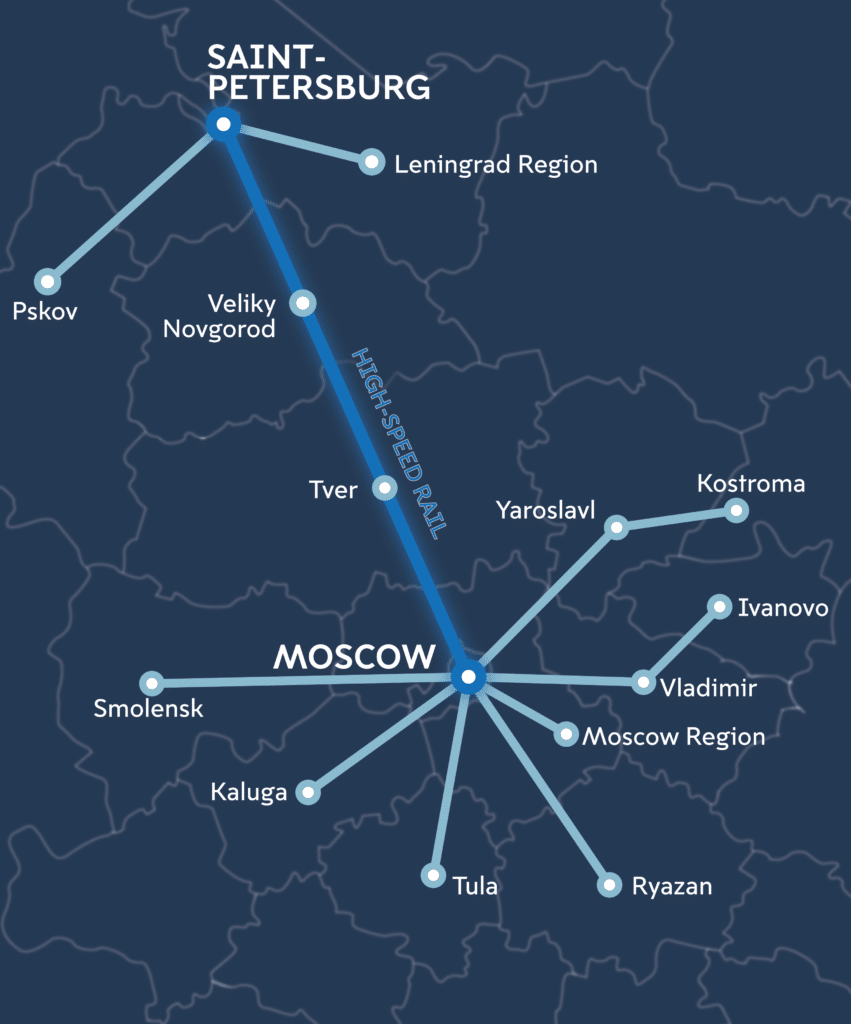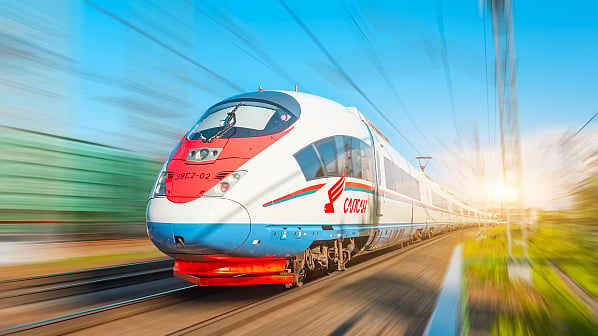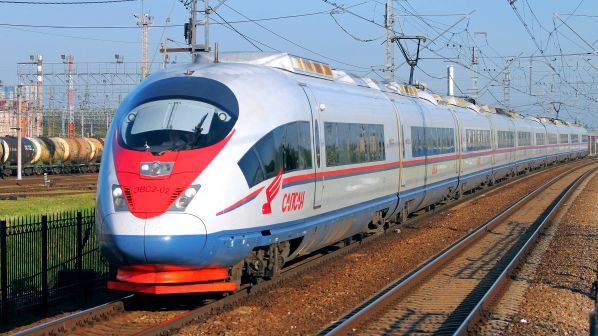RUSSIA has started construction of its long-discussed first high-speed line between Moscow and St Petersburg. The cost of the VSM-1 project, which is due to open in 2028, has not been disclosed, nor has the total length of the new line.
The new line will include 16 stations, four of these in Moscow. Within the Moscow area work includes: provision of extra tracks between Leningradsky and Alabushevo stations, construction of six bridges and five railway overpasses, reconstruction of three road overpasses and reconstruction of four existing stations that will become high-speed line stations when the new line opens. These are: Leningradsky, Rizhskaya, Petrovsko-Razumovskaya and Zelenograd-Kryukovo, which will provide interconnections with Moscow’s metro and commuter services.
Russia is understood to be designing a high-speed train capable of speeds up to 400km/h to operate on the new line. The country’s previous attempts to develop a high-speed train were unsuccessful, leading Russia to partner with Siemens, which delivered and maintained a fleet of Sapsan high-speed EMUs based on its Velaro platform. That partnership was dissolved following Russia’s invasion of Ukraine.

A 772km high-speed project to connect Moscow with the eastern city of Kazan in partnership with China became the focus of Russia’s high-speed ambitions after another Moscow - St Petersburg scheme was shelved in 2012. Russia’s president, Mr Vladimir Putin, said in August 2023 that Russia should look to extend high-speed infrastructure to Nizhny Novgorod, Voronezh and Kazan in the future.
The new trains are expected to nearly halve the current journey time between Moscow and St Petersburg to around 2h 15min. Services are expected to run frequently, initially at intervals of 15-20 minutes at peak times, increasing to 10-15 minutes from 2030.
“High-speed trains will stop at existing stations within the city, further enhancing the integration of the high-speed railway into Moscow's transport network, enabling passengers to craft more efficient routes,” says Mr Maksim Liksutov, Moscow’s deputy mayor for transport.


